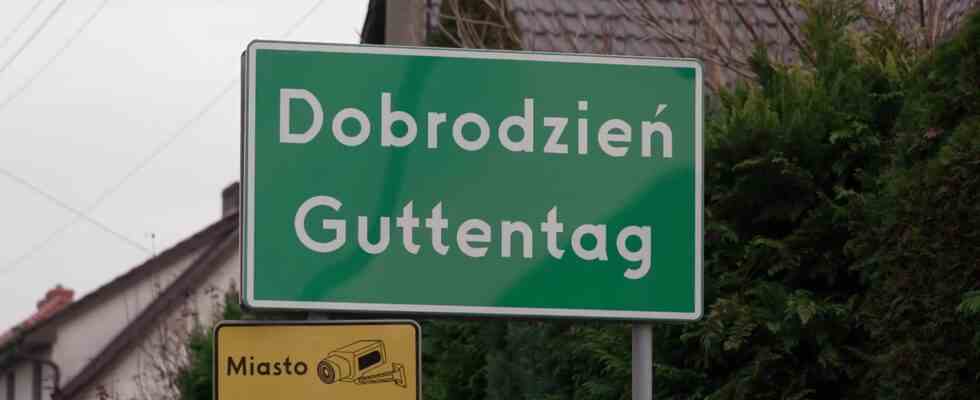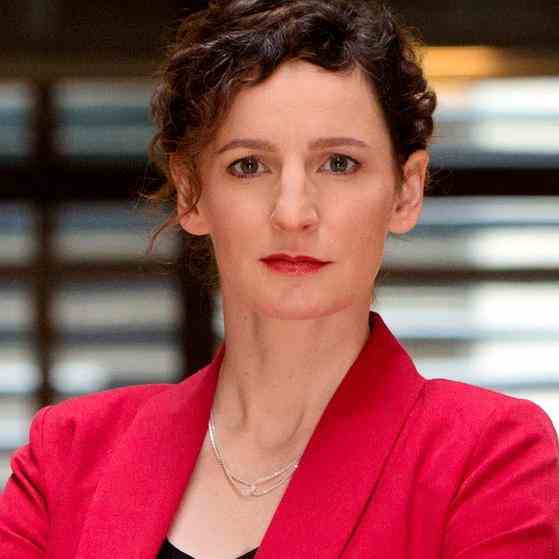Europe Magazine
Status: 12/10/2022 4:12 p.m
Poland’s government has zeroed in on Germany as an enemy. The German minority in the country also suffers from this. One reason for this: Berlin is doing too little for the Poles in Germany.
A ten-year-old girl stands on the stage of the cultural center in “Guttentag”, that’s the name of the small town east of Opole, in German Oppeln, in Silesia. Shyly, she sings the children’s song “I have a little parrot” in German with a clear Polish accent. The majority of the German minority in Poland, around 30,000 people, live in the region around Opole. And in Guttentag, a German-language song festival is on the program today. Many of the children who take part here belong to the German minority.
Rafal Bartek sits in the audience and claps. It’s important to keep the German language here, too, says the chairman of the “Association of German Social-Cultural Societies in Poland.” Bartek is practically a kind of spokesman for the German minority. Only since the end of the People’s Republic of Poland more than twenty years ago has the community been able to officially cultivate language and culture again.
German minorities in Poland
Kristin Joachim, ARD Warsaw, Europe Magazine, December 10, 2022
Playing with resentment
Bartek fears that much of what they have achieved since then could now be lost again. It is true that the fact that there is a common Europe has brought the population and peoples much closer together. On the other hand, “we are currently experiencing a very critical phase in which politicians, especially here in Poland, are again playing very heavily with anti-German resentments and are thus pursuing politics,” says Bartek.
“Black-and-white politics” is what Bartek calls the style of the Polish government, which always needs someone to blame – and at the moment, unfortunately, it’s the Germans. Because there is an election campaign in Poland, and above all the chairman of the ruling PiS party, Jaroslaw Kaczynski, has zeroed in on Germany as an enemy. And thus also on the Germans in Poland.
The powerful neighbor
During an election campaign appearance at the end of November, for example, Kaczynski explained that for years no one believed him, but that Germany was planning a united Europe under German leadership: “The main state would be Germany, followed perhaps by France and the Netherlands, but other states should simply submit.”
Kaczynski says that Poland has to submit anyway, that’s an old German concept of Central Europe. Germany as an overpowering enemy, this policy has very practical consequences, not just in terms of foreign policy.
Cancellation of funds for the German minority
For the German minority, it means that grants from the Polish state budget have been cut by the equivalent of a good 8.5 million euros this year. They should actually be available for native German lessons. This eliminates two out of three hours per week.
In the elementary school in Dębska Kuźnia, around 15 kilometers from Opole, they try to somehow keep the lessons going despite the lack of funds from Warsaw. Because for the children here, the language is also part of their identity, says school director Krystyna Jakuczek: “The children have a cultural connection with Germany, which was shaped by history.”
It is therefore important that they know and are able to preserve the traditions and customs. “If they stop learning German, they would lose their roots.” Jakuczek has had success at the community level. The authorities here are now paying for the missing two hours a week.
Claiming funds for Poles in Germany
In Warsaw, the reason for the cut is that the federal government is doing too little for the Polish community in Germany. However, the German government explains that they are an immigrant group and not a national minority in the formal sense.
Nevertheless, the pressure from Poland is now having an effect: the Bundestag has approved in the budget to provide one million euros in 2023 and two million euros each in 2024 and 2025 for Polish lessons for children of Polish immigrants. So far, the money has come from the federal states.
Next Polish print
At the same time, five million euros from the federal budget will go to the German minority in Poland for German lessons. The PiS party does not appease this. Just last week, the Polish Minister of Education, Czarnek, confirmed that Poland spends 50 million euros a year on teaching German as a mother tongue. And only when Germany increases its spending on Polish lessons to a similar amount will Warsaw resume funding German lessons altogether.
For Rafal Bartek from the German minority, it’s a dramatic situation. The Germans in Poland would be exploited. “We were taken hostage by this anti-German policy, which means the Germans in Berlin, ultimately not us. But we became the victims – in this case the children.”
You can see this and other reports in Europamagazin – on Sunday at 12.45 p.m. in the first.


